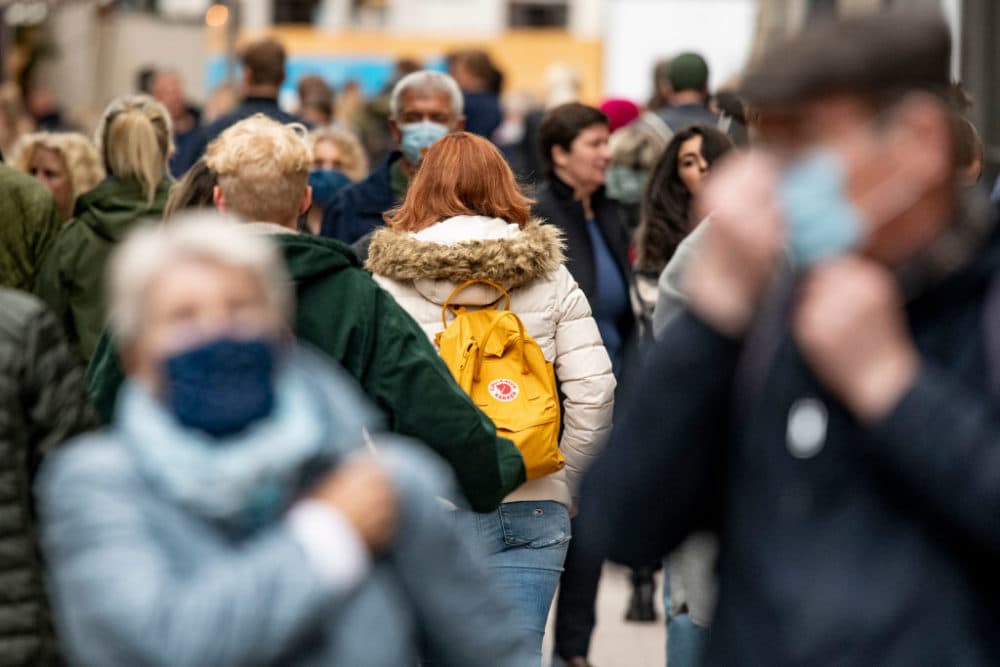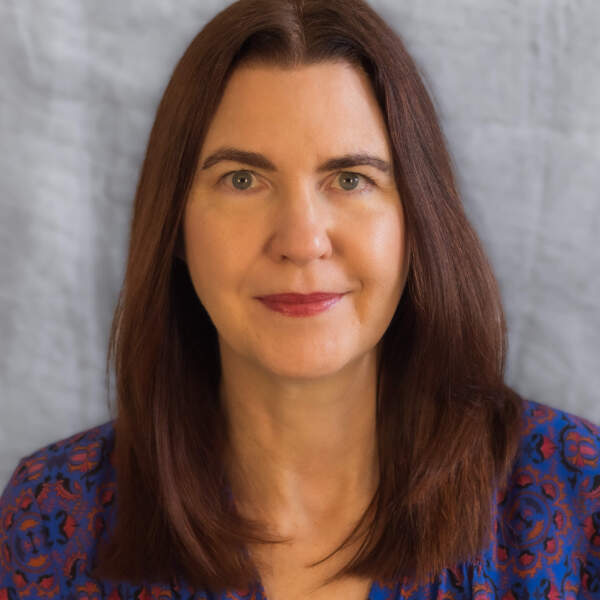Advertisement
Commentary
As A White Woman With Untreated Schizophrenia, I Was Never Deemed A Threat. Many Aren't As Fortunate

I’d been talking to threatening voices in my head nonstop since 6 a.m., when a loud knock on the bedroom door startled me. A male police officer and two EMTs entered the room. They tried to contain their shock at the disarray, piles of books and clothes covered everything.
My long auburn hair had six inches of gray at the roots. I was 5’ 10” and only 115 lbs. Attempting to determine if the police officer was a good spirit or a bad spirit, I grabbed my backpack filled with documents about my targeting, and whipped out papers to show him. He gazed at me sympathetically, “We have other people we need to get to. We’re going to go the hospital with you.” I understood that the police officer was on my side, one of the good guys trying to protect me from the operatives I believed were working in the mind control program.
I was 46 when I developed paranoid schizophrenia. It was a rare late onset. As the disease progressed, I found myself possessed by bizarre behavioral symptoms, commanding voices and delusions of people following me. These are now fully controlled by anti-psychotic medication, but during the six-year course of my untreated illness, I had numerous encounters with the police when I was psychotic. Although roughly handcuffed once, most of these interactions were courteous.
I was 46 when I developed paranoid schizophrenia. It was a rare late onset.
As a middle-aged white woman, I was never deemed a threat. I was also not so sick, that I couldn’t respond appropriately to a police officer’s instructions. Still, these experiences traumatized me. I remembered these experiences when I learned about Ricardo Munoz.
On September 13, 2020, Munoz, who has paranoid schizophrenia, burst through his front door in Lancaster, Pennsylvania brandishing a knife. His sister, who lived across town, had been trying to get him committed for inpatient psychiatric care. Another sister, who lived on his block, called 911 and explained that he was mentally ill, being aggressive and needed to be hospitalized.
The responding police officer ran when Ricardo charged him with a knife — and then suddenly, turned and shot him several times, killing him. Munoz’s story follows a sad, familiar pattern. He’d stopped taking his medication. His family was desperately trying to get him help. They couldn’t find a psychiatrist with an opening to treat him. Munoz’s sister called the police hoping to assist him. And now he is dead.
According to a study by the Treatment Advocacy Center, people with untreated mental illness are 16 times more likely to be killed during a police encounter than other civilians approached by law enforcement. So why do police in America continue to be called to deal with people suffering serious mental illness?
Advertisement
[W]hy do police in America continue to be called to deal with people suffering serious mental illness?
Police are not equipped to handle a severely psychotic person. Someone with paranoid schizophrenia might be under the delusion that an approaching officer has been inhabited by an alien, and has come to take him away to be “experimented on” at a hospital. The terrified person is waving a knife for protection. Stay away, you’re after me! The delusion is completely real to the person in a psychotic episode, they may be hearing commanding voices giving them directions. The police officer is one of them! Don’t let him take you.
I know because I heard those voices.
A person in the grips of severe psychosis may also be incapable of following an officer’s verbal commands. If an ill person is holding a weapon, it instinctively registers as a dangerous individual to police, who are trained to respond with deadly force.
Earlier this month, New York City announced the creation of Mental Health Teams a pilot program to respond to mental health emergencies. In a health-centered approach like this, teams may include nurses, social workers, psychologists, psychiatrists and peers who are trained to de-escalate a mental health crisis. Police will only join the teams in emergencies involving a weapon. The goal is to prevent unnecessary deaths and to connect people with the medical services they need. This is a good measure, but it’s only a small part of how our system can better help mentally ill people.
In many parts of the country, prisons are the biggest provider of psychiatric services. There is also a shortage of psychiatrists, a crisis that is predicted to only get worse. So many psychiatrists don’t accept health insurance and when they do, waits are long. When I was recovering from a hospitalization, I called every psychiatrist in Boston on my plan. Only one appointment was available, six months away. Rather than go to the emergency room for medication, I paid $450 for a private psychiatrist.
I have a serious brain disease that is a medical condition, not a personal failing.
Meanwhile, the community mental health centers that were supposed to replace the psychiatric institutions, were never adequately funded to provide care to people living independently. There is also insufficient supportive housing for people with serious mental illness to meet demand. This leaves a fractured system of mental health care that fails the sickest and most middle-to-low-income patients. Access to good psychiatric care is becoming a luxury only the rich can afford.
More than 3 million people in America suffer from schizophrenia, yet we hide in the shadows, isolated from each other, ashamed of our illness. I rarely hear someone express hope for a cure.
I have a serious brain disease that is a medical condition, not a personal failing. We require compassion and the same type of quality treatment and rehabilitation that would be given to a neurology patient. Now that I’m well, I frequently observe homeless people with schizophrenia in parks talking to themselves. They’ve become a problem for the police to handle. I realize how lucky I am to have avoided this fate. Police, even police supported by health professionals, are no substitute for a properly functioning mental health care system.
Under the treatment of an excellent psychiatrist, I am thriving back in reality after recovering from a debilitating psychosis. The new administration faces no shortage of challenges when it comes to creating a more equitable world, but I urge them to focus on innovations in managing mental illness. The American Psychiatric Association is currently calling for regulations enacting a permanent expansion and parity of telehealth sessions after the coronavirus pandemic. That would be good first step.
Our story could be one of triumph over disease.
